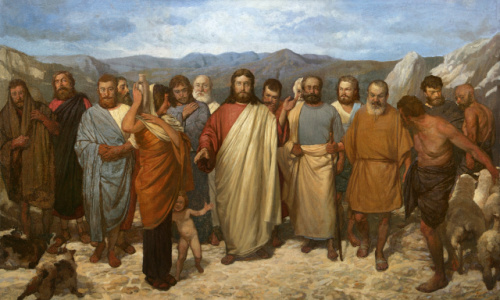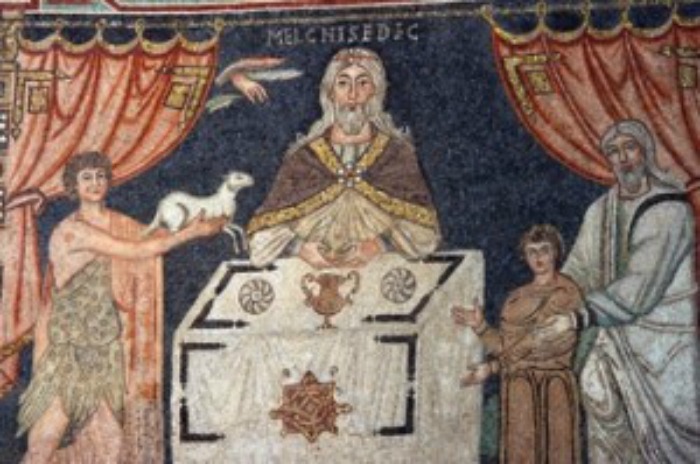Question
Gramps,
I was reading in Matthew chapter 16 today and read the part where Christ asks His disciples who they believe Him to be. Peter responds that Christ is “the Son of the living God” (verse 16 KJV). In verse 20, Matthew records: “Then charged he his disciples that they should tell no man that he was Jesus the Christ”. Why did Christ want that information to be kept quiet?
Jared
Answer
Dear Jared,
While we cannot know for certain, there are a few theories as to why the Lord didn’t want his apostles to tell people that he was the Christ. I will give the short versions below and provide some references so you can go and read in more detail if you wish:
1. Jesus’s fame was so great that it actually hindered his ability to move around and do the work he came to do. So we could say, he didn’t need more publicity.
2. The leaders of the Jews were already seeking ways to stop his ministry, and later to kill him. Public testimony that he was the Messiah may have hastened their efforts. Christ frequently stated that it wasn’t “his time”. And he was killed only a week after he was publicly acknowledged as the Messiah.
3. Some of those testifying were devils. In addition to the way the leaders would have used such against him, the testimony of devils doesn’t convert.
4. The Jews were expecting a political or military Messiah – one who would destroy their enemies and make them a great kingdom again. Public declaration that he was the Messiah may have led to open rebellion, which was not his mission.
You can find detailed information on all these reasons in the Mark 8:30 (Chapter 13) entry of the Institute New Testament Student Manual. In Jesus the Christ, Chapter 22, Talmage explains:
The confession by which the apostles avowed their acceptance of Jesus as the Christ, the Son of the living God, was evidence of their actual possession of the spirit of the Holy Apostleship, by which they were made particular witnesses of their Lord. The time for a general proclamation of their testimony had not arrived, however; nor did it come until after Christ had emerged from the tomb a resurrected, immortalized Personage. For the time being they were charged “that they should tell no man that he was Jesus the Christ.” Proclamation of Jesus as the Messiah, particularly if made by the apostles who were publicly known as His most intimate disciples and associates, or open assumption of the Messianic title by Himself, would have aggravated the hostility of the rulers, which had already become a grave interference if not an actual menace to the Savior’s ministry; and seditious uprisings against the political government of Rome might easily have resulted. A yet deeper reason for the secrecy enjoined upon the Twelve appears in the fact that the Jewish nation was not prepared to accept their Lord; and to ignore Him through lack of certain knowledge involved a lesser degree of culpability than would have attached to an unpalliated rejection. The particular mission of the apostles at the time then future was to proclaim to all nations Jesus, the crucified and resurrected Christ.
Some other thoughts I had are:
5. John 7:25-26 suggests to me that many were looking for their leaders to tell them whether Jesus was the Christ:
25 Then said some of them of Jerusalem, Is not this he, whom they seek to kill?
26 But, lo, he speaketh boldly, and they say nothing unto him. Do the rulers know indeed that this is the very Christ?
But in Matthew 16:15-18 we learn that it’s not from man’s testimony that one learns Jesus is the Christ, but from God, through the Holy Ghost:
15 He saith unto them, But whom say ye that I am?
16 And Simon Peter answered and said, Thou art the Christ, the Son of the living God.
17 And Jesus answered and said unto him, Blessed art thou, Simon Bar-jona: for flesh and blood hath not revealed it unto thee, but my Father which is in heaven.
18 And I say also unto thee, That thou art Peter, and upon this rock I will build my church; and the gates of hell shall not prevail against it.
Until Christ’s ministry was complete, only those who sought this testimony from the Father would know that Jesus was the Christ.
6. Related to #4, if converts followed hoping for a political or military leader and there was a failed revolt or no revolt at all, they may have seen Jesus as a false Messiah, and the Savior’s Church may have failed before it was ever established – or at least had a much harder time.
7. Finally, until the Savior’s ministry was complete – until he was Resurrected – even his apostles couldn’t fully and properly testify of who he was or of his mission, because they didn’t fully understand it (Luke 18:34, John 12:16, and Luke 9:45 ). Also, remember that even they were not yet converted (Luke 22:32) and didn’t have the gift of the Holy Ghost (John 7:39, John 14:26, John 15:26-27) – until they did, it seems they weren’t to preach or testify publicly (see Acts 1:4-8) – at least, not outside Jerusalem.
While all these are theories and deductions, I think you can see that there were many potential reasons why Jesus delayed the public proclamation that he was the Messiah. I hope this answers your question and that you will continue your study of scripture and take every opportunity you have to testify that Jesus is the Christ.
Gramps







